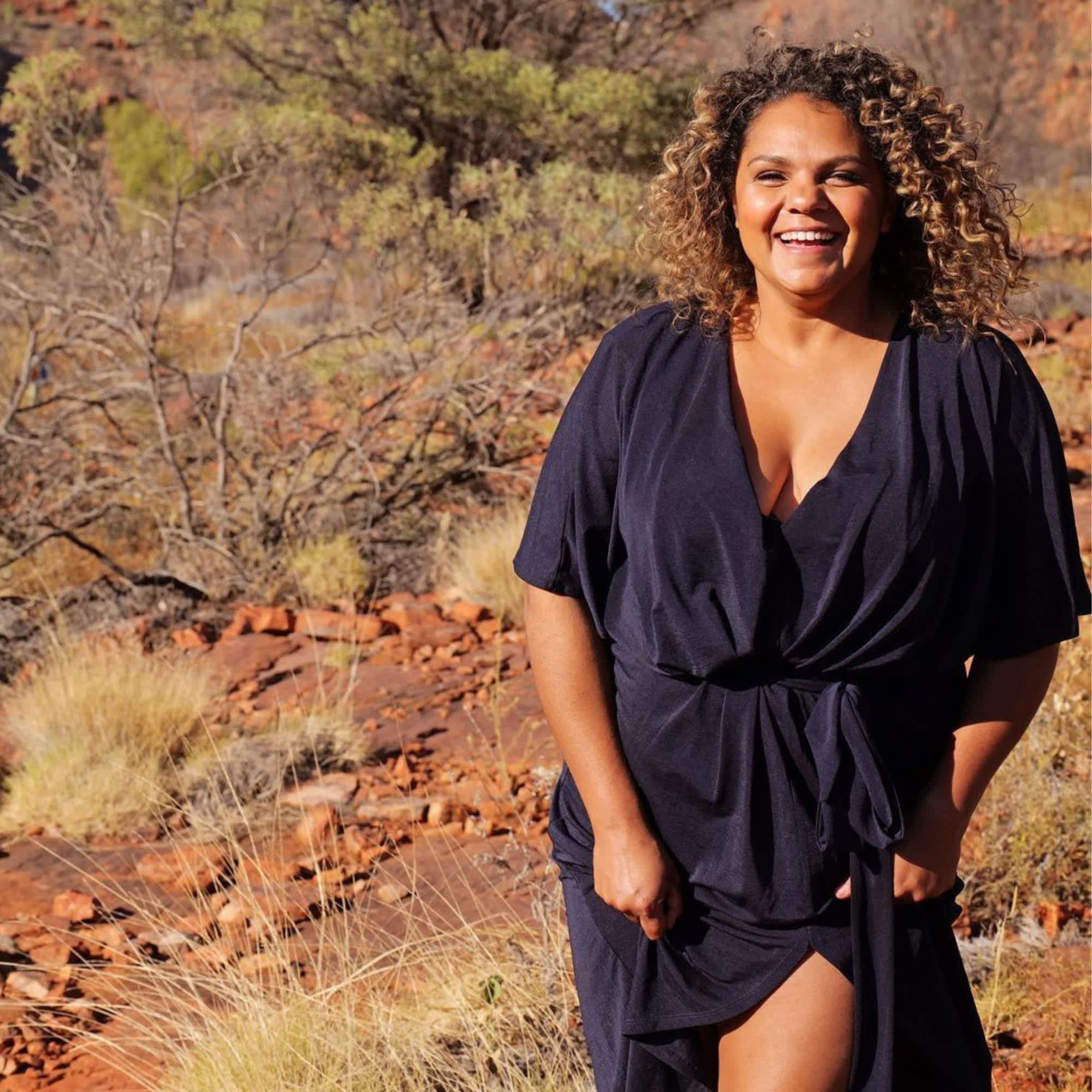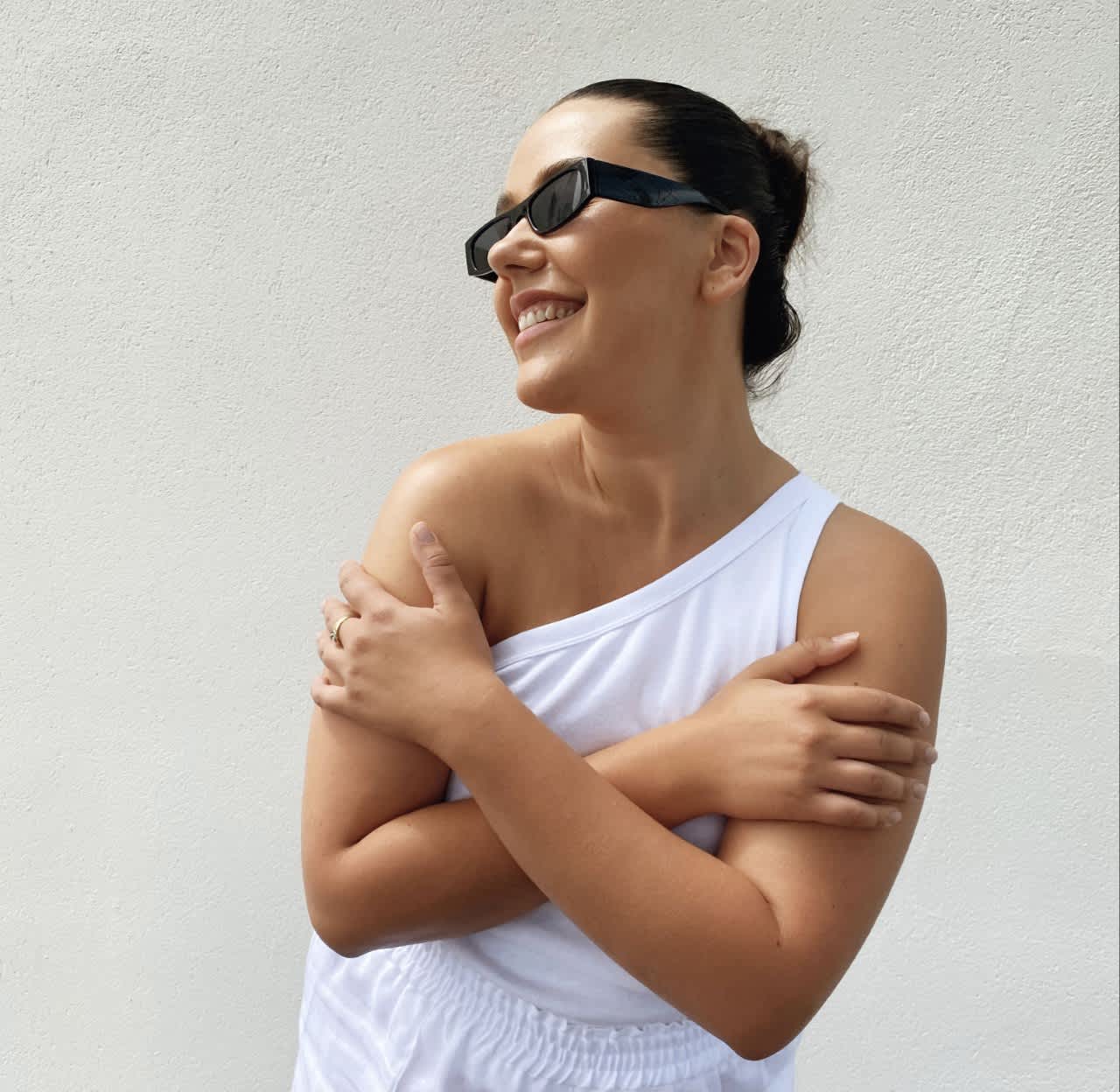
- POPSUGAR Australia
- Living
- Aboriginal Actress Rarriwuy Hick on Growing Up in Two Different Worlds
Aboriginal Actress Rarriwuy Hick on Growing Up in Two Different Worlds

NAIDOC Week celebrates and recognised the history, culture and achievements of Aboriginal and Torres Strait Islander peoples. It’s an opportunity for all Australians to learn about First Nations cultures and histories. The POPSUGAR team is sharing stories to help educate, honour and guide in our continued to push for change, so be sure to find all our pieces here. Val Morgan Digital acknowledges the Traditional Custodians of Country throughout Australia and their connections to land, sea and community. We pay respect to their Elders past and present and extend that respect to all Aboriginal and Torres Strait Islander peoples.
Rarriwuy Hick grew up in two very different worlds, in bustling Sydney and in Dhalinybuy, an Aboriginal community in Arnhem Land, Northern Territory.
“My childhood felt as though I was jumping from one culture to the next,” Hick tells POPSUGAR Australia.
“They’re so different. The city lifestyle is a busy one, there’s the sound of traffic and sirens, it’s cold at night and making a cup of tea is so simple — you just turn the kettle on. Whereas in Dhalinybuy, I’m chopping firewood in the morning, carrying it with a wheelbarrow and making a fire… it takes an hour and a half to make a cup of tea. They’re just completely opposite worlds.
She says that as a young kid, she didn’t feel like she belonged in either world, and that that was quite challenging. Many of the experiences she was having in the city, her family back home didn’t understand. Now, though Hick says she’s finally learnt to embrace her upbringing and appreciate both worlds.
Hick grew up surrounded by incredible artists, with her mother (Janet Munyarryun, a Yolngu woman) and uncle being among the founding members of Bangarra Dance Theatre, Australia’s first official Aboriginal dance school, now one of Australia’s leading performing arts companies.
So then it’s no surprise that Hick became a creative, in her case, an actor, herself. During her studies, she was offered the lead role in the Aboriginal-produced play Wrong Skin. While studying, she performed on the tour, which is where her love of acting first began.
“I only really felt like I belonged when I started acting. Once I’d found acting, I found myself,” she says.
“I was very shy, I couldn’t speak in public at all and was really nervous about taking the role. But there was just something telling me I needed to try it. Once I did, I completely fell in love with acting. That was kind of it for me.”
Since that breakout role, for which she was nominated for Female Actor of the Year at the Deadly Awards, Hick has had an extremely successful career in Australian film and television, best known for her roles in Redfern Now: Promise Me, Cleverman and Wentworth.
And now, in her latest upcoming TV series True Colours —airing as part of SBS’s celebration of NAIDOC Week and their first multiplatform offering with NITV — Hick says the experience of filming this series has been one of the most rewarding yet.
“There was a moment on set when our cinematographer, sound department and almost all the crew were all black fellas and it was really amazing,” says Hick.
“Just to see more Aboriginal people filming TV shows, operating cameras, in the sound department, hair and make-up… it makes you feel more culturally safe on set, even just knowing that they’ll have the right make-up for your skin tone and know what to do with your hair — you just feel looked after properly.”
Hick says that though the diversity on Australian screens still has a long way to go, it’s also come so far over the past decade.
“I was at the Logies last week, and I’ve truly never seen as many Aboriginal people there as I did last week,” she says. “Every Aussie TV channel had Indigenous cast and crew and it’s just amazing, seeing our mob everywhere. Because let’s be honest, there’s just so much talent out there. It can’t be ignored forever.”
Although positive change feels as though it’s happening, it’s important not to get carried away with our progress; especially during a week like NAIDOC Week.
“Like many others, I thought that the removal of Indigenous children was in the past. It wasn’t until I experienced it myself — my nephews were removed — that I learnt it was actually a national problem. And it still hasn’t stopped.”
Since 2018, Hick has been speaking out against this with her #ourkidsbelongwithfamily hashtag. Still, though, she doesn’t call herself an activist.
“I’m just here to share my story. I want safety for our mob and I’m fortunate enough to have a platform,” Hick says. “I worked really hard to be where I am now, and shining light on an important issue like that is just something that feels natural.”
She says that in order for Indigenous peoples, and others, too, to create opportunities to share their stories and lens on life, they need to have as many conversations as possible.
“Take a little bit of the weight off us,” she says. “Have those conversations with friends, change people’s perspectives… By working together, we can become equals — we just need to have constant yarns and conversations.”


